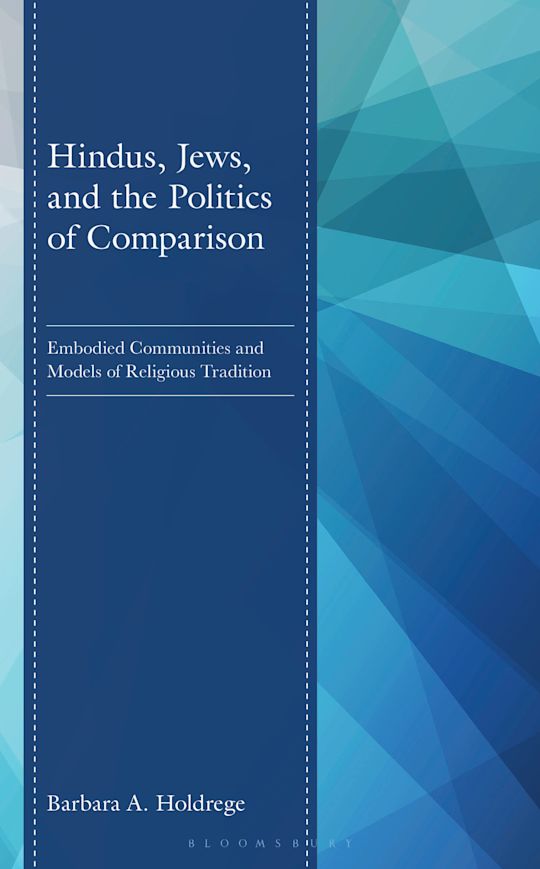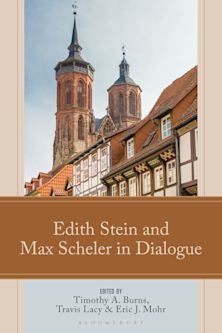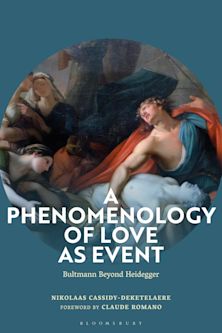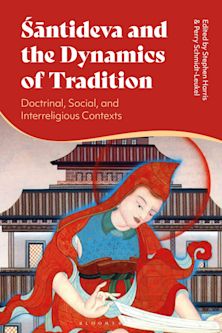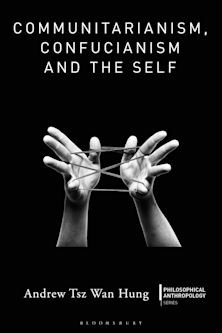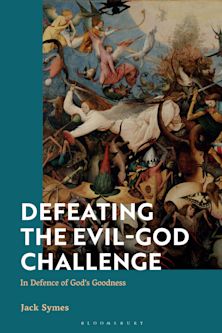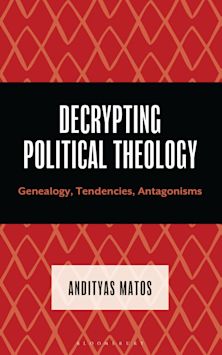- Home
- ACADEMIC
- Philosophy
- Philosophy of Religion
- Hindus, Jews, and the Politics of Comparison
Hindus, Jews, and the Politics of Comparison
Embodied Communities and Models of Religious Tradition
Hindus, Jews, and the Politics of Comparison
Embodied Communities and Models of Religious Tradition
Payment for this pre-order will be taken when the item becomes available
You must sign in to add this item to your wishlist. Please sign in or create an account
Description
In Hindus, Jews, and the Politics of Comparison: Embodied Communities and Models of Religious Tradition, Barbara A. Holdrege emphasizes the role of comparative study as a method of critical interrogation that can serve as a means to challenge hegemonic taxonomies and categories in the academy and to reconstitute our scholarly discourse to allow for a multiplicity of epistemologies. Holdrege provides an extended series of reflections on the politics, problematics, and dynamics of comparison in which she explores how certain analytical categories in the study of religion-such as the body, scripture, sacrifice, purity, and food-can be fruitfully reimagined through a comparative analysis of their Hindu and Jewish instantiations. The author argues that this re-visioning of analytical categories through sustained comparative historical studies of a range of Hindu and Jewish traditions can provide the basis for generating alternative imaginaries to the prevailing Eurocentric and Protestant-based paradigms in the academy that have perpetuated the ideals of Enlightenment discourse and colonial and neocolonial projects. Such studies can serve as an important corrective to the scholarly practices through which certain categories and models have been privileged over others in the social sciences and humanities and in religious studies more specifically.
Table of Contents
Introduction
1: The Politics of Comparison: Beyond the Tyranny of Taxonomies
South Asia and the Middle East: Beyond European Hegemony
Hinduisms and Judaisms: Beyond Protestant Christian Hegemony
2: What Have Hindus to Do with Jews? Hindu-Jewish Encounters in the Academy and Beyond
Historical Encounters: South Asian and Middle Eastern Cultures, Indic and Judaic Worlds
Collaborative Scholarly Encounters: Comparative Studies of Hindu and Jewish Traditions
Interreligious Encounters: Hindu-Jewish Dialogue
3: Veda and Torah: Textual Communities and the Word Beyond Text
From Text to Symbol
I. Veda
II. Torah
III. Veda and Torah
Reimagining Scripture
4: Models of Religious Tradition: Embodied Communities and Missionizing Traditions
Embodying Ethnocultural Identities
Missionizing Traditions and Universalizing Projects
5: The Gastrosemantics of Hindu and Jewish Foodways: Food Taxonomies, Dietary Regimes, and Socioreligious Hierarchies
Embodied Communities and Foodways
Food Taxonomies and Animal Classifications
Dietary Regulations and Social Classifications
Food Preparation and Food Transactions
Afterword
From the Locative/Utopian Dichotomy to the Dialectic of Local Histories/Global Designs
Embodied Communities and Missionizing Traditions
Note on Translations and Transliteration
Notes
Bibliography
About the Author
Product details

| Published | 02 Apr 2026 |
|---|---|
| Format | Ebook (PDF) |
| Edition | 1st |
| Extent | 312 |
| ISBN | 9781978778764 |
| Imprint | Bloomsbury Academic |
| Illustrations | 6 BW Illustrations, 2 Tables |
| Series | Studies in Comparative Philosophy and Religion |
| Publisher | Bloomsbury Publishing |
About the contributors
Reviews
-
“Barbara Holdrege is a pioneer of responsible cross-cultural comparison in the study of religion. Taking into account recent methodological approaches in the field, in this book she demonstrates how a thoughtful analysis of Jewish and Hindu traditions, with a particular focus on scripture and food, enriches the study of either religion. Most importantly, the book makes a larger theoretical argument. It shows that, while the similarities in how Jewish and Hindu texts conceptualize their traditions as embodied, locative communities set them apart from missionizing traditions such as Buddhism, Christianity, or Islam, both Jewish and Hindu thinkers also developed hermeneutical techniques that allowed them to expand their traditions by discursively incorporating new concepts and practices. It is this dual comparative approach, which juxtaposes not only Judaism and Hinduism but also these two with other religious traditions, that makes the book so unique. Only thoughtful comparative research can produce these important insights.”
Oliver Freiberger, author of Considering Comparison: A Method for Religious Studies
-
“Extending the work of Oliver Freiberger and other theorists of comparison, in this book Barbara Holdrege returns to the comparative study of Hindu and Jewish traditions with new questions and insights. Ranging religious traditions on a spectrum between embodied particularism and disembodied universalism, she demonstrates the parallels between Hindu and Jewish traditions, showing in the process their differences from Buddhist, Christian, and even Islamic traditions. Beyond the finely detailed comparisons between Vedic and post-Vedic texts and rabbinic and kabbalistic texts-even an entire chapter on food taxonomies and dietary regimes!-it is this attention to new theoretical ways of thinking about Hindu and Jewish communities that is the greatest contribution of this book. Indeed, after reading this book I think about Hindus, Jews, and what Holdrege calls the 'politics of comparison' in a much more nuanced fashion. Her models are inspiring, even exciting.”
Rachel Fell McDermott, co-author of A Hindu-Jewish Conversation: Root Traditions in Dialogue









